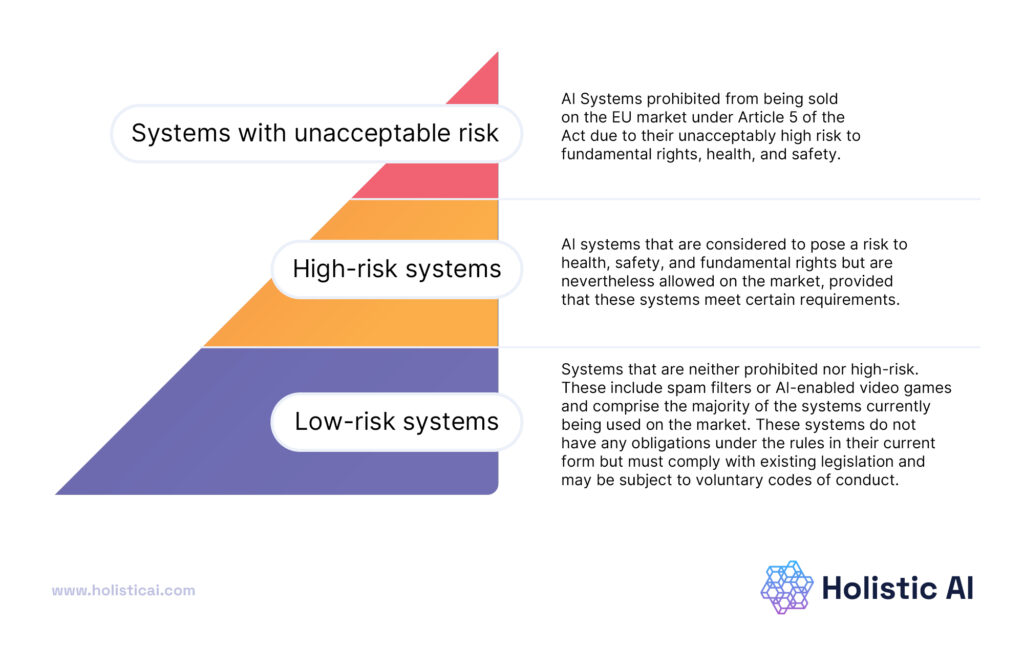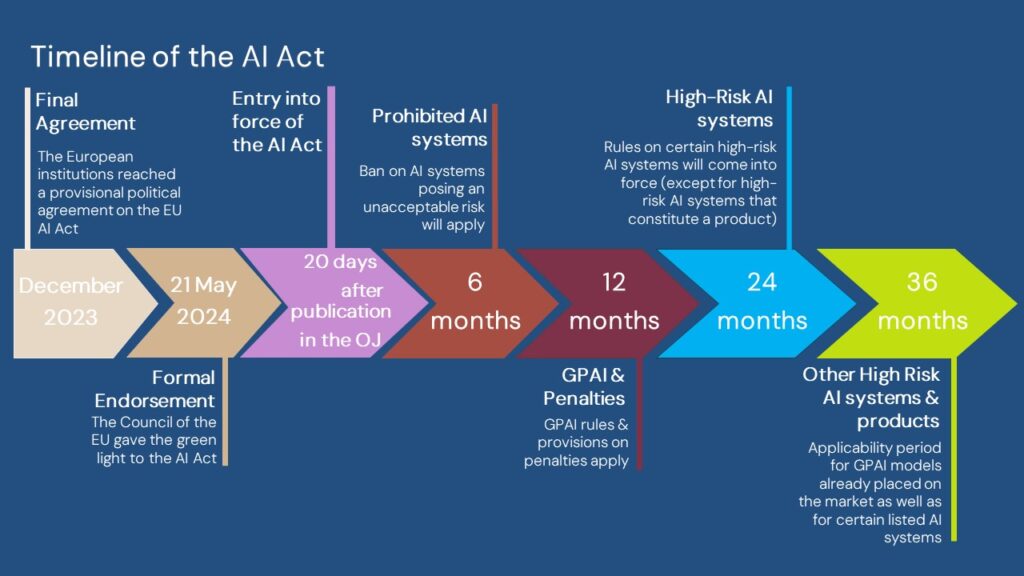Introduction
The EU AI Act (official EU page) is the world’s first major law regulating artificial intelligence. While it might sound complex, understanding it is essential for small businesses, especially if you want to work with European clients or enter the EU market.
In this guide, we’ll break down the law into simple, practical points so you can meet compliance requirements without legal headaches.
1. What is the EU AI Act?
The EU AI Act is a set of rules introduced by the European Union to ensure that AI systems are safe, transparent, and respect fundamental rights. It applies to any business offering AI products or services in the EU – even if you’re based outside Europe.
💡 Key takeaway: If your AI tool or service reaches EU customers, you must follow the Act’s rules.
2. Risk-Based Classification of AI
The law groups AI systems into four risk categories. Your compliance requirements depend on your category.

3. Risk-Based Classification of AI
| Risk Level | Examples | Requirements |
| Minimal Risk | Chatbots for FAQs, basic AI tools | Few requirements |
| Limited Risk | AI-generated ads, spam filters | Transparency rules |
| High Risk | AI in hiring, credit scoring, healthcare | Strict compliance, documentation |
| Unacceptable Risk | Social scoring, harmful surveillance | Banned entirely |
4. Special Support for SMEs
The EU AI Act recognizes the challenges small businesses face and offers:
- Regulatory sandboxes for testing AI products in a safe environment.
- Reduced compliance costs for startups and SMEs.
- Free guidance from national authorities.
📌 Tip: Take advantage of the EU’s AI compliance support programs before launch.
5. Key Deadlines

- Feb 2025 → Ban on unacceptable-risk AI begins.
- Aug 2025 → High-risk AI rules start.
- 2026-2027 → Full enforcement for all categories.
Failing to comply can lead to penalties of up to €35 million or 7% of global turnover.
6. Quick Compliance Checklist
- Identify your AI’s risk level.
- Keep clear documentation of AI processes.
- Ensure transparency with users.
- Avoid using banned AI practices.
- Test for bias and discrimination.
- Keep updated with EU guidance.
7. Benefits of Compliance
- Build trust with EU customers.
- Avoid legal and financial risks.
- Gain a competitive advantage.
- Easier EU market entry.
Conclusion
The EU AI Act is a game-changer for how AI is developed and used in Europe. Small businesses that understand and apply these rules early will not only avoid penalties but also win trust in a growing market.
If you’re a small business exploring AI solutions or looking to expand in the European market, our team can help. Learn more about our IT services or get in touch with us today to make sure your business stays compliant while growing confidently in the EEA region.
